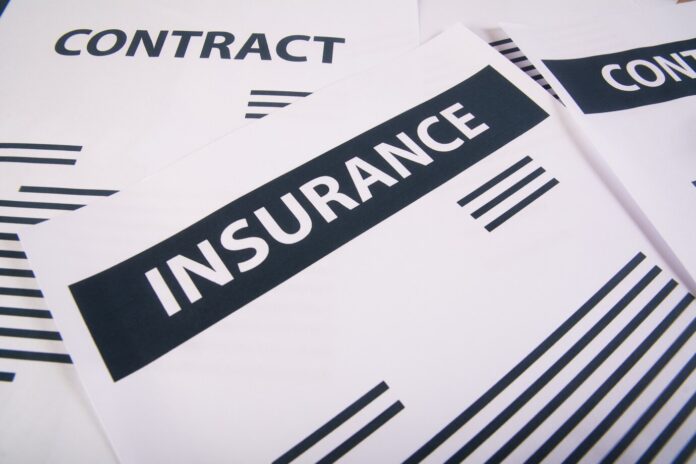Few experiences in life are as terrifying or traumatic as a large commercial trucking accident.
They often lead to very bad injuries and property damage. If you’re involved in a truck accident, it’s crucial to understand your insurance coverage and what your insurer may not tell you.
Insurance companies are businesses focused on profits, and they may not always prioritize your best interests. In this article, we’ll explore important things you should know about your insurance coverage after a truck accident to help you navigate the situation effectively.
In cases where you need legal assistance, a Lytal, Reiter, Smith, Ivey & Fronrath – Fort Myers truck accident attorney can provide valuable support.
Just Because They Admit Fault Doesn’t Mean They Will Pay You Fairly
Insurance adjusters may state that the auto insurance company accepts responsibility or admit that their driver was at fault for the collision. While this type of action may appear like you are being treated fairly, it’s often a tactic to discourage you from hiring a personal injury lawyer. Insurance adjusters dislike it when victims hire attorneys because it increases their costs and the chances of having to pay more to the victim. If a victim elects to handle the claim themselves, the insurance company will likely offer a lower settlement.
You Don’t Have to Provide a Recorded Statement
Many insurance adjusters will tell victims that they must give a recorded statement to receive compensation for their injuries. However, you shouldn’t provide a recorded statement to the other driver’s insurance company. Such statements can hurt your case by leading you to make mistakes or admitting to detrimental facts. The role of the claims adjuster is often to minimize the payout, and they may use recorded statements against you.
You Don’t Have to Provide Medical Records
The insurance adjuster may tell you that they “need” your past medical information or that “it will help us determine a fair settlement.” However, insurers want all of your medical records so that they can find evidence to use against you. Additionally, they may claim that they will not pay for certain procedures or therapies because they are not necessary. It’s important to be cautious when sharing medical information with the insurance company, as they may use it to minimize your claim.
You Don’t Have to Take the Initial Settlement Offer
The first settlement offer is typically less than you need or deserve. Settling early on after an accident is never in your best interests, especially if you suffered serious injuries. Before settling, you need to understand the full extent of your injuries and damages, so you won’t be left to deal with future medical issues related to the accident on your own. Insurance companies may offer a quick settlement to close the case cheaply, but it’s important to evaluate your damages thoroughly before accepting any offer.
Understanding Your Policy Limits
Insurance policies have limits on the amount they will pay for damages. Your insurer might not emphasize this, but it’s important to understand your policy limits, as they determine the maximum compensation you can receive. These limits apply to both liability coverage, which pays for damages you cause to others, and comprehensive or collision coverage, which pays for damage to your own vehicle. Knowing your policy limits can help you understand the maximum amount you can expect to recover from your insurer.
The Importance of Uninsured/Underinsured Motorist Coverage
Uninsured/underinsured motorist (UM/UIM) coverage protects you if the at-fault driver doesn’t have enough insurance to cover your damages. Your insurer might not highlight this coverage, but it’s crucial, especially in truck accidents where damages can be extensive. UM/UIM coverage can help cover medical expenses, lost wages, and other damages if the other driver lacks adequate insurance. It’s important to check your policy for this coverage and consider adding it if you don’t have it.
The Benefit of Hiring an Attorney
Your insurer may not tell you that hiring an attorney can be beneficial when dealing with a truck accident claim. An attorney can help you understand your rights, negotiate with the insurance company, and ensure that you receive fair compensation. Attorneys can also help you avoid common pitfalls and deal with any disputes that arise during the claims process. Working with an attorney increases your chances of achieving a favorable outcome and protects your interests.
The Need to Document Your Damages
Your insurer might not emphasize the importance of documenting your damages after a truck accident. Proper documentation is crucial for supporting your claim and ensuring that you receive fair compensation. This documentation should include photographs of the accident scene, medical records, repair estimates, and any other evidence of your damages. Keeping detailed records helps establish a clear and accurate account of the accident and supports your claim.
The Tactics to Delay or Deny Claims
Insurance companies may use tactics to delay or deny claims, such as disputing liability, questioning the extent of your damages, or requiring extensive documentation. Your insurer might not tell you about these tactics, but it’s important to be aware of them and be prepared to address any issues that arise. An attorney can help you navigate these challenges and advocate for your interests if the insurance company tries to delay or deny your claim.
Conclusion
Understanding your insurance coverage after a truck accident is crucial for protecting your rights and getting fair compensation. By knowing your policy limits, the importance of uninsured/underinsured motorist coverage, the role of the claims adjuster, the true value of your claim, the benefit of hiring an attorney, the impact of recorded statements, the need to document your damages, and the tactics to delay or deny claims, you can navigate the insurance claims process effectively and avoid common pitfalls.












